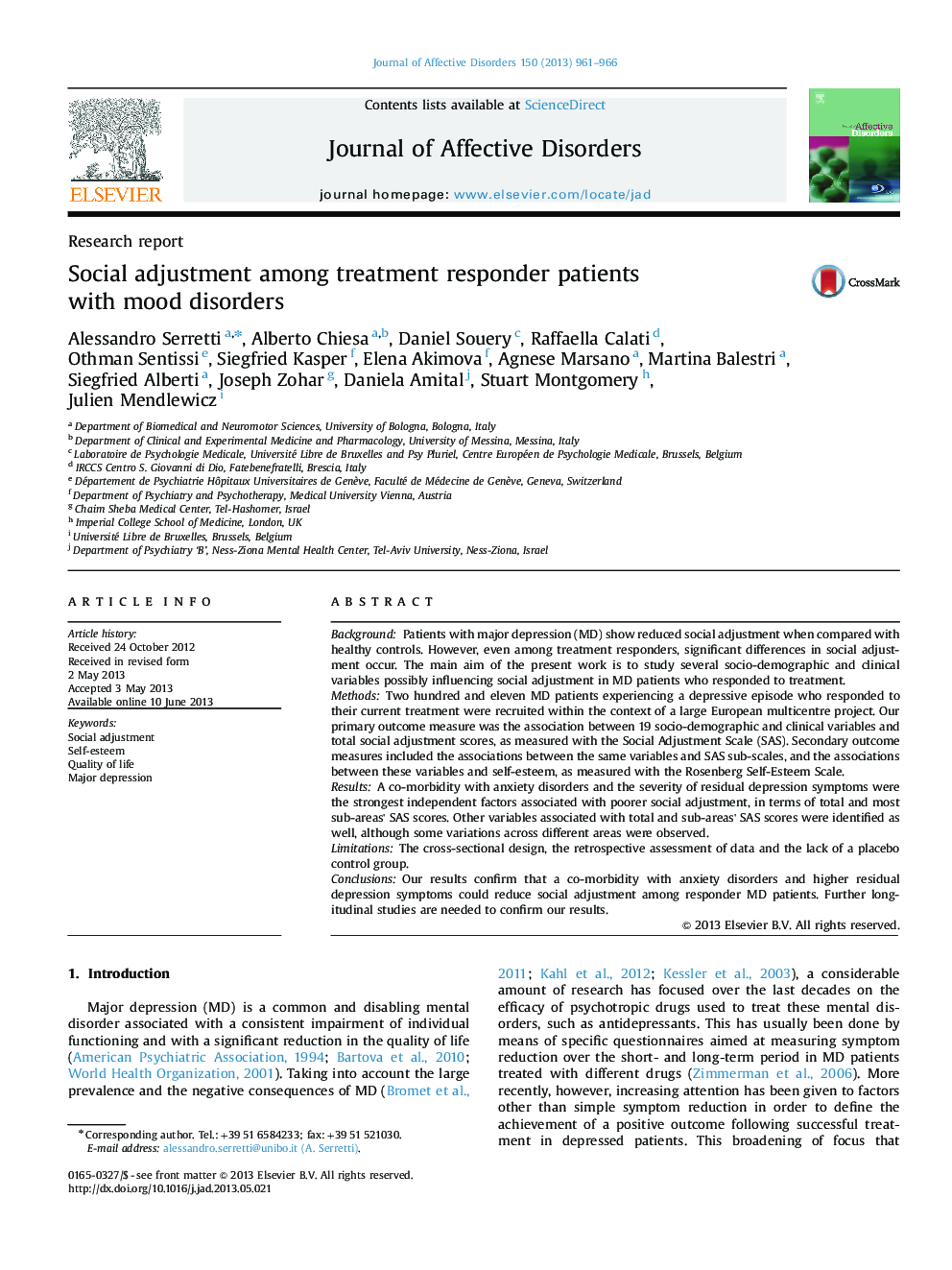| Article ID | Journal | Published Year | Pages | File Type |
|---|---|---|---|---|
| 6233652 | Journal of Affective Disorders | 2013 | 6 Pages |
BackgroundPatients with major depression (MD) show reduced social adjustment when compared with healthy controls. However, even among treatment responders, significant differences in social adjustment occur. The main aim of the present work is to study several socio-demographic and clinical variables possibly influencing social adjustment in MD patients who responded to treatment.MethodsTwo hundred and eleven MD patients experiencing a depressive episode who responded to their current treatment were recruited within the context of a large European multicentre project. Our primary outcome measure was the association between 19 socio-demographic and clinical variables and total social adjustment scores, as measured with the Social Adjustment Scale (SAS). Secondary outcome measures included the associations between the same variables and SAS sub-scales, and the associations between these variables and self-esteem, as measured with the Rosenberg Self-Esteem Scale.ResultsA co-morbidity with anxiety disorders and the severity of residual depression symptoms were the strongest independent factors associated with poorer social adjustment, in terms of total and most sub-areas' SAS scores. Other variables associated with total and sub-areas' SAS scores were identified as well, although some variations across different areas were observed.LimitationsThe cross-sectional design, the retrospective assessment of data and the lack of a placebo control group.ConclusionsOur results confirm that a co-morbidity with anxiety disorders and higher residual depression symptoms could reduce social adjustment among responder MD patients. Further longitudinal studies are needed to confirm our results.
